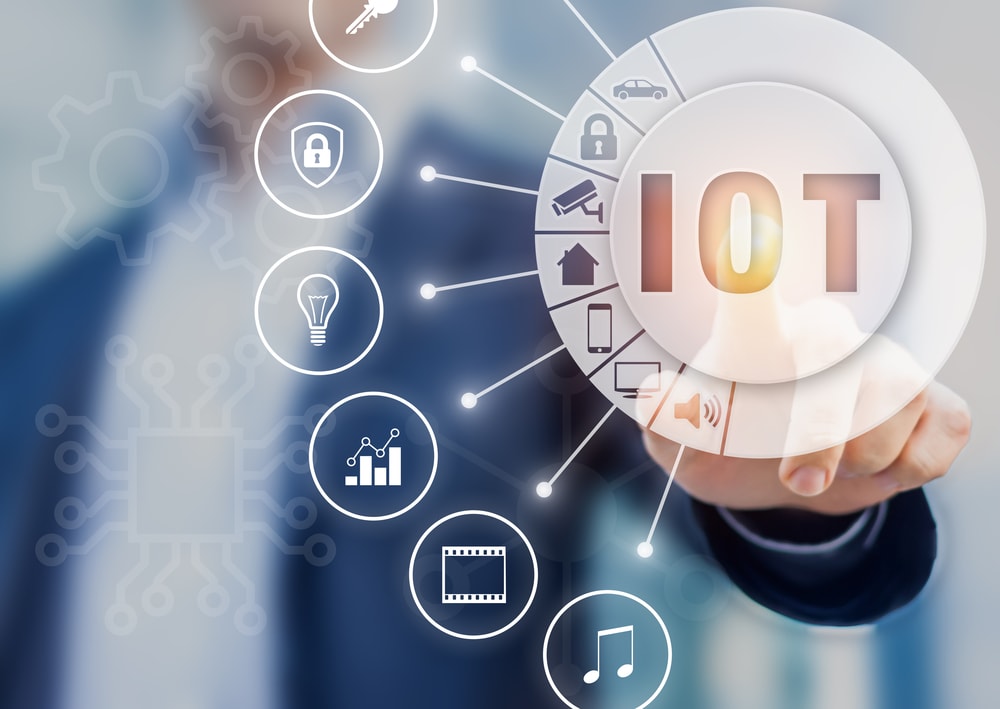What you Should Know About IoT
The Internet of Things is a system of interrelated mechanical and digital machines, computing devices, and objects that can transmit data over a network without human intervention. Increasingly, various organisations in different industries are relying on IoT to improve efficiency and understand consumer behaviours, helping them deliver better customer service and come up with more effective business decisions. So, here’s what you should know about IoT.
What is IoT?
The Internet of Things (IoT) refers to a system of connected physical devices communicating using the internet. These devices work by collecting and sharing data with other devices and applications. IoT is undoubtedly one of the most influential technologies in the 21st century. Thanks to IoT, we can connect everyday objects like thermostats, kitchen appliances, and cars to the internet using embedded devices. IoT has also allowed seamless communication between processes, people, and things.
With IoT, physical devices can share and collect data with less human intervention, made possible through low-cost computing, data analyticsm, mobile technologies, and the cloud. Thanks to this hyperconnected world, digital systems can monitor and record every interaction among connected things. Basically, IoT has allowed the physical world to meet and interact with the digital world.
A system of interconnected devices, IoT works like mini-computer processors that rely on machine learning to act upon data collected through sensors. IoT comes in various forms, from temperature monitors to warehouse equipment and fitness trackers. An IoT system integrates four main components, sensors or devices, data collection and connectivity, data processing or machine learning, and user interface.
You Must Ensure your IoT Systems are Secure
There are many important things to keep in mind when integrating IoT. One of these is to ensure that the system remains secure. While the Internet of Things can benefit businesses in many ways, it also has some drawbacks. One of these is the security risk. But there are ways to keep your IoT systems secure.
Insufficient security measures are some of the drawbacks of integrating IoT systems. With IoT, there is always the fear of data leaks since smart devices work by collecting and transmitting confidential information, and this can come with drastic consequences once the data leaks. Unfortunately, it’s rare for IoT solutions to have adequate anti-tampering means. Also, some of these solutions do not comply with applicable encryption protocols, data protection standards, and other technologies designed to prevent unauthorised access to sensitive data.
Failure to secure the system can lead to tragic consequences like the loss of corporate data, identity theft, etc. When implementing security measures for IoT solutions, companies can use specialist IoT recruitment agencies to hire software engineers who can help keep their systems secure. These engineers will ensure that the installed software and hardware systems don’t have any weak spots and are not prone to hacking attempts.
It will Help with Marketing Strategies
One of the many ways IoT can help businesses is through its marketing strategies. IoT works by collecting data and passing it from any device to the cloud through the internet. How these devices connect will vary, depending on the purpose. Because of this, it helps to generate a massive base of connected users, offering an opportunity for marketers to reach out to new users and devise deeper consumer insights.
One way to use IoT for marketing strategies is to embed a product with sensors for IoT connectivity. Take this even further by allowing customers to share their unique data and use it for valuable insights. While this is among the most investment heavy IoT systems due to the cost of hardware and software, the results are guaranteed reliable.
Another way you can tap into IoT for your marketing strategies is through Smart Product Labels. Your existing customers can be a great starting point for your new marketing campaign since they are at the bottom of the funnel. They will likely show interest in your value proposition and are open to cross-selling or upselling.
You Must Keep Up to Date
There is a growing market for IoT devices, and according to research, the market will continue to grow in the coming years. Businesses that want to benefit from IoT must stay updated in this growing market. Things like bespoke training solutions for employees can help keep the whole organisation up to date with IoT and other processes.
The Internet of Things is a fast-growing industry, allowing businesses to customise customer experiences since connected devices are accessible anywhere these days. However, customer demands keep changing, which is why IoT engineers continue to innovate while maintaining customers’ trust since connected devices come with security concerns.
Although IoT has been around for many years, it’s still in the early stage of security and privacy. Most companies focus more on marketing their products, and security tends to go to the back seat. For the future of IoT, businesses must improve customers’ trust by addressing privacy and security concerns.
Improves Customer Service
IoT’s ability to collect user-specific data through smart devices helps businesses better understand and analyse customer expectations and behaviour. In addition, IoT helps improve customer service by allowing follow-ups after sales through automatic tracking. It also helps to remind customers about the necessary maintenance of equipment they purchased, warranty periods, etc.
Another way IoT can help improve customer service is by providing a more satisfying in-store experience. IoT makes it easier for customers to purchase what they want, which increases profitability. Aside from collecting and analysing data about a specific product, it also helps retailers to revamp their stores to drive more revenue. For instance, stores can integrate Bluetooth beacons, which will allow them to obtain visual heat maps that will reveal the movement of customers inside the store.
IoT has also allowed businesses to offer seamless and quick resolutions to customer issues. It provides real-time visibility on device behaviour, allowing companies to monitor performance, identify problems, and fix issues as soon as they occur, sometimes even before the customer notices. Furthermore, wireless connectivity has made updating software and products faster and more cost-effective.
























